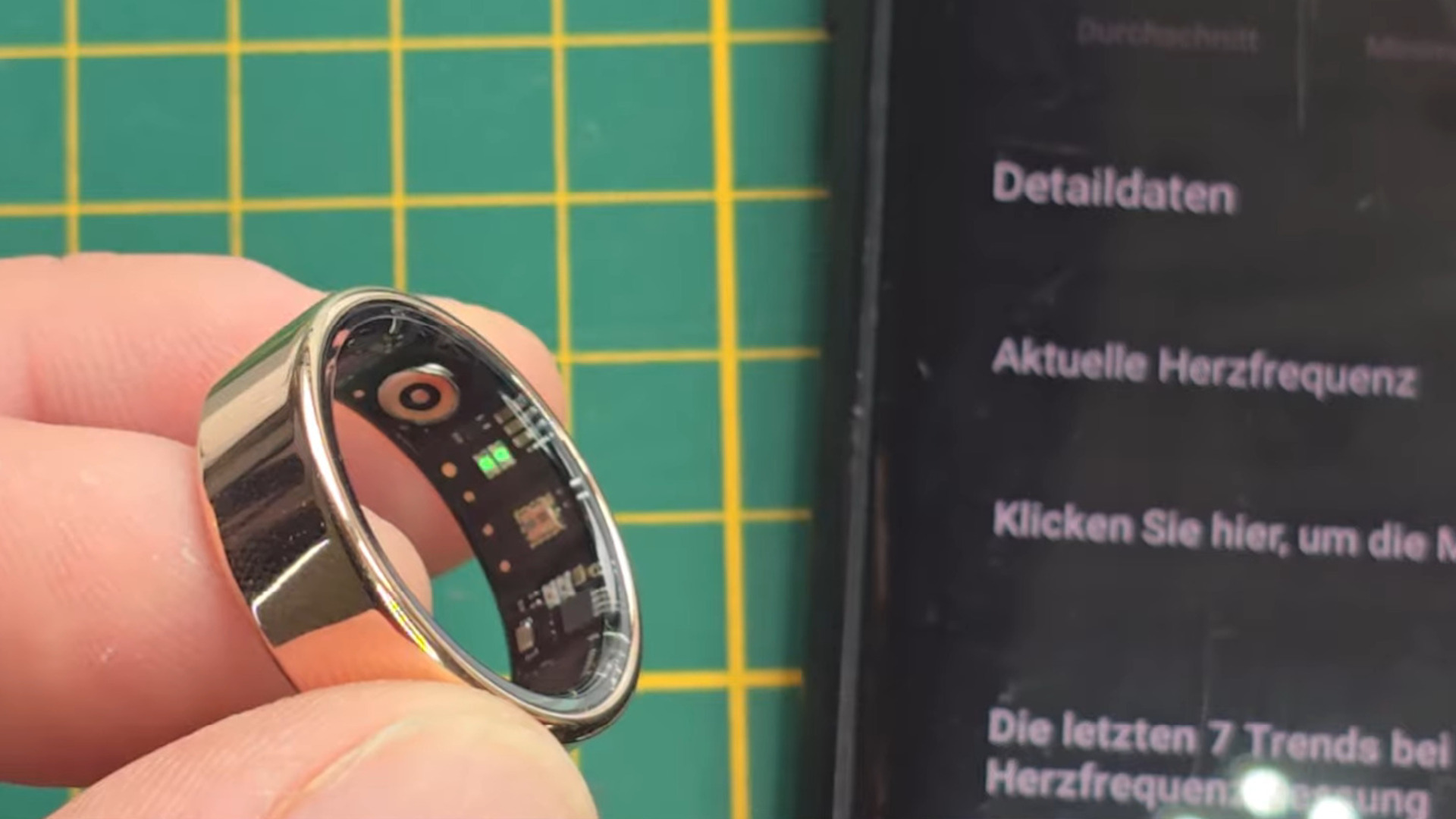We’ve seen prolific firmware hacker [Aaron Christophel] tackle smart devices of all sorts, and he never fails to deliver. This time, he’s exploring a device that seems like it could have come from the pages of a Cyberpunk RPG manual — a shiny chrome Bluetooth Low Energy (BLE) smart ring that’s packed with sensors, is reasonably hacker friendly, and is currently selling for as little as $20.
The ring’s structure is simple — the outside is polished anodized metal, with the electronics and battery carefully laid out along the inside surface, complete with a magnetic charging port. It has a BLE-enabled MCU, a heartrate sensor, and an accelerometer. It’s not much, but you can do a lot with it, from the usual exercise and sleep tracking, to a tap-sensitive interface for anything you want to control from the palm of your hand. In the video’s comments, someone noted how a custom firmware for the ring could be used to detect seizures; a perfect example of how hacking such gadgets can bring someone a brighter future.
The ring manufacturer’s website provides firmware update images, and it turns out, you can upload your own firmware onto it over-the-air through BLE. There’s no signing, no encryption — this is a dream device for your purposes. Even better, the MCU is somewhat well-known. There’s an SDK, for a start, and a datasheet which describes all you would want to know, save for perhaps the tastiest features. It’s got 200 K of RAM, 512 K of flash, BLE library already in ROM, this ring gives you a lot to wield for how little space it all takes up. You can even get access to the chip’s Serial Wire Debug (SWD) pads, though you’ve got to scrape away some epoxy first.
As we’ve seen in the past, once [Aaron] starts hacking on these sort of devices, their popularity tends to skyrocket. We’d recommend ordering a couple now before sellers get wise and start raising prices. While we’ve seen hackers build their own smart rings before, it’s tricky business, and the end results usually have very limited capability. The potential for creating our own firmware for such an affordable and capable device is very exciting — watch this space!
We thank [linalinn] for sharing this with us!
